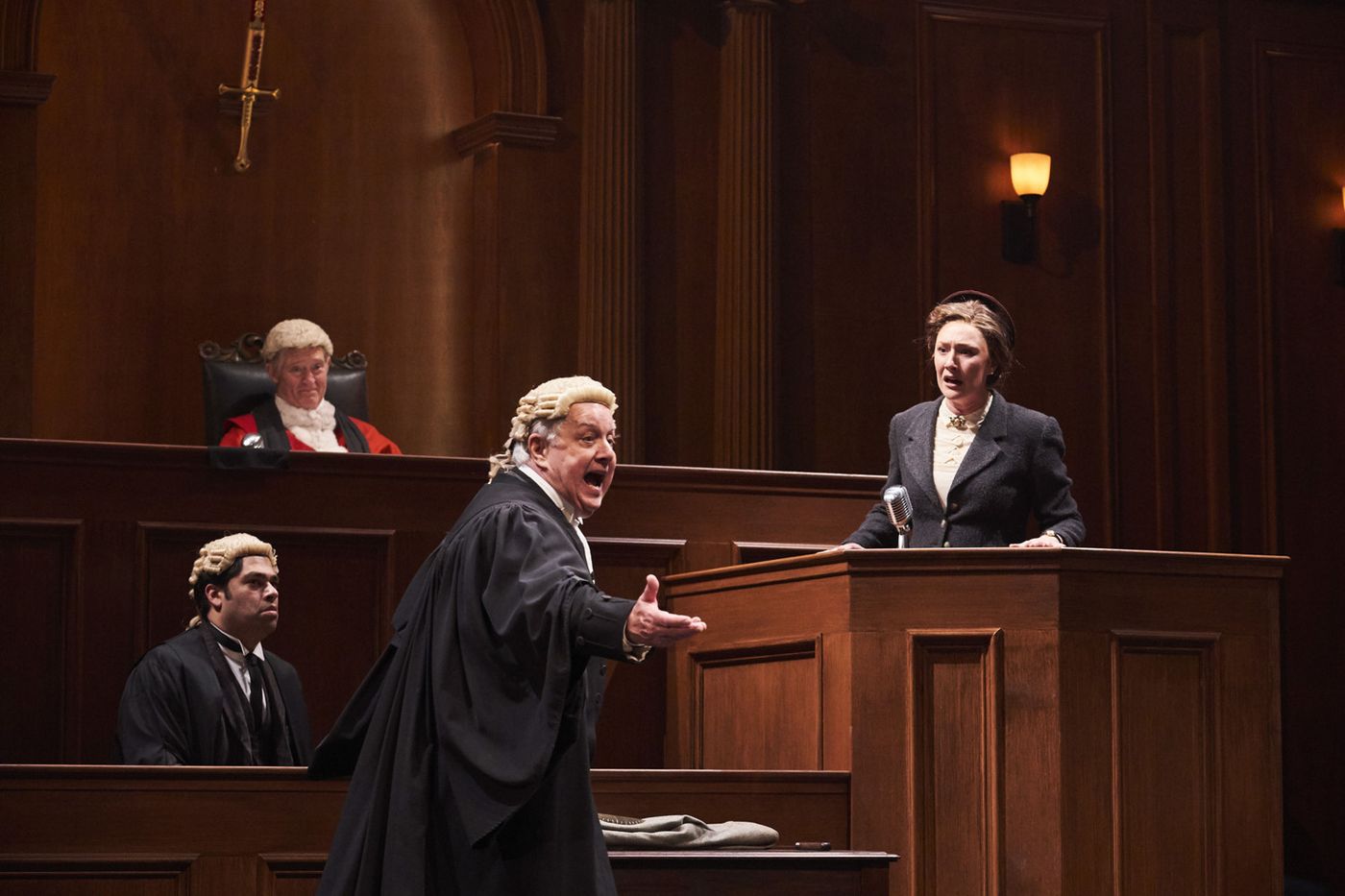Review: Plot twisting WITNESS FOR THE PROSECUTION Compels at Great Lakes Theater

Agatha Christie, the "Queen of Crime," was a British writer of murder mysteries, noted for creating plays, books and short stories. They not only contained intriguing plot twists, which centered on scandalous murders, elaborate twists and turns, but revealed basic "truths" that are not what they seem.
Her "The Witness for the Prosecution," now in production at Great Lakes Theater, is a typical intriguing Christie script. In this work, however, instead of a death or deaths taking place on stage and a search taking place for "who did it," the murder has already occurred, and the police have already arrested a solid suspect."
"Prosecution" was originally published as a short story, and later, after supposedly laying in a drawer with other manuscripts for years, was transformed into a play.
A review of the initial production stated, "The author has two ends in view, and she attains them both. She takes us into the Old Bailey during an exciting trial for murder, into chambers where the human reactions of the lawyers engaged in the case may be studied; and when the trial is over and there seems no more to be said, she swiftly ravels again the skein which the law has confidently unraveled, and leaves herself with a denouement which is at once surprising and credible."
The tale begins with a conversation between Sir Wilfrid Robarts, Q.C., a lawyer, and Leonard Vole, a handsome young man who is accused of the murder of Miss Emily French, an elderly, wealthy, woman who Vole recently befriended.
The young man seems honest to the core. He states he is innocent, but is soon arrested by the police. The quickly evolving plot is pushed along when Robarts takes the case.
The majority of the rest of play, with the exception of one pivotal scene, takes place in the courtroom where the details of the murder, Vole's relationship with his "wife," and what really happened, unfolds.
Christie creatively leads us down one path, changes directions, throws other possibilities out, and then, as good writers of mysteries do, taunts us once more. In the end, a sudden twist, or in this case, several plot turns, leaves not only no doubt of "who did it," but exhausted from the chase.
The Great Lakes production, under the solid direction of Artistic Director Charles Fee, quickly grabs and holds attention. The drama, humor and clever plot construction are finely tuned.
Gage Williams' meticulously constructed court room set, with the jury stage right and the visitor's gallery stage left, the judge presiding over the hearing, stage center, creates a perfect setting.
Rick Martin's lighting effects help transfer us out of the courtroom for several scenes. Esther M. Haberlen's period-correct costumes aid in creating the needed reality and point to the personalities of the characters.
The acting is all top-notch. Aled Davies nicely creates Robarts as a strong, dedicated lawyer. Taha Mandviwala plays naïve well as the accused Leonard. Jodi Dominick's Romaine Vole, Leonard's "wife," is chillingly iceberg-cold and manipulative. David Anthony Smith is delightful as the judge, Mr. Justice Wainwright.
CAPSULE JUDGEMENT: With fine acting, clear directing, impressive technical aspects, and encompassing writing, "Witness for the Prosecution" makes for a wonderful theatrical experience. Go. See. Enjoy!
The show runs through March 10, 2019 in the Hanna Theatre. Tickets can be ordered by calling 216-241-6000 or going to http://www.greatlakestheater.org/
Next up at GLT: "The Taming of the Shrew," Shakespeare's fun-filled battle of the sexes from March 29 through April 14.
Reader Reviews
Videos

